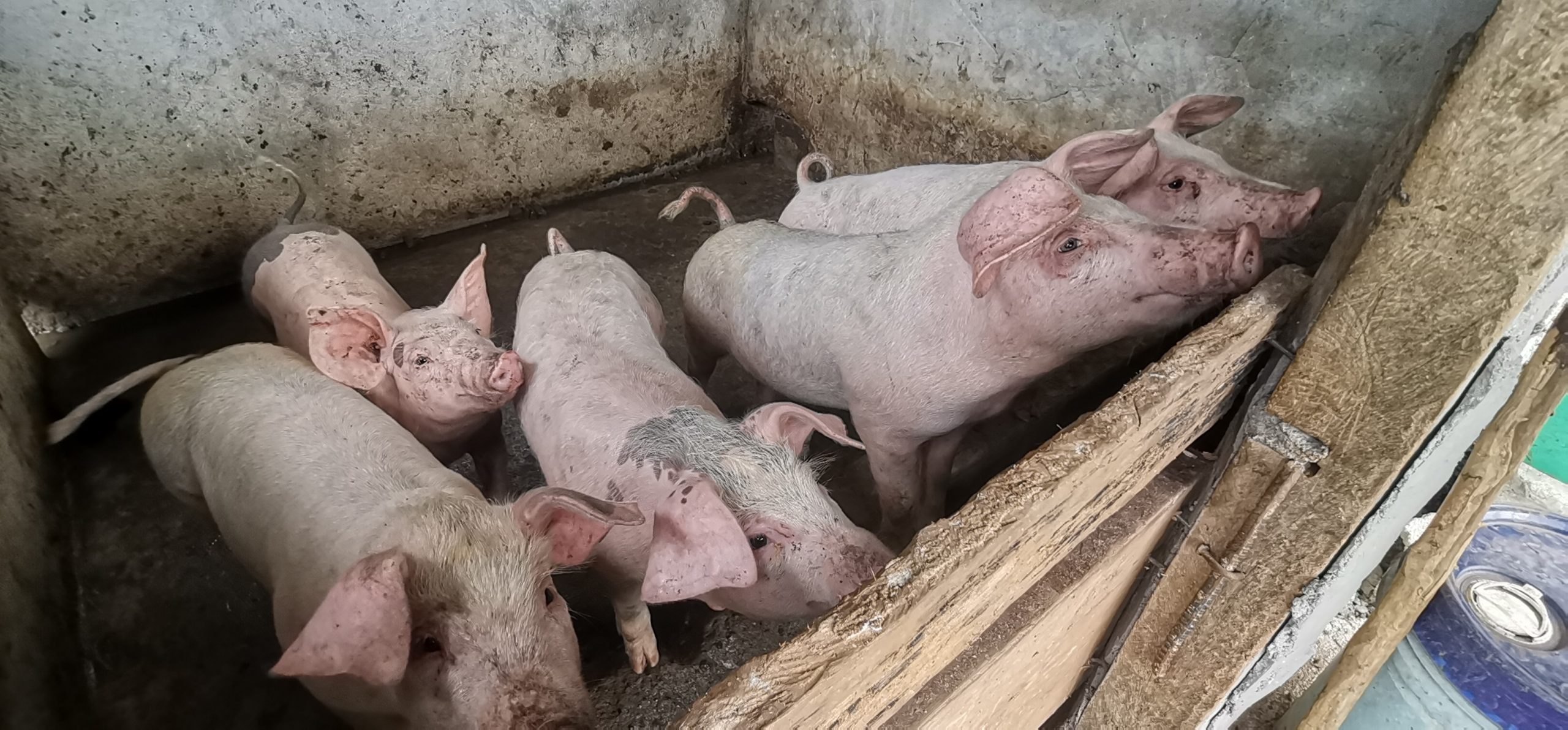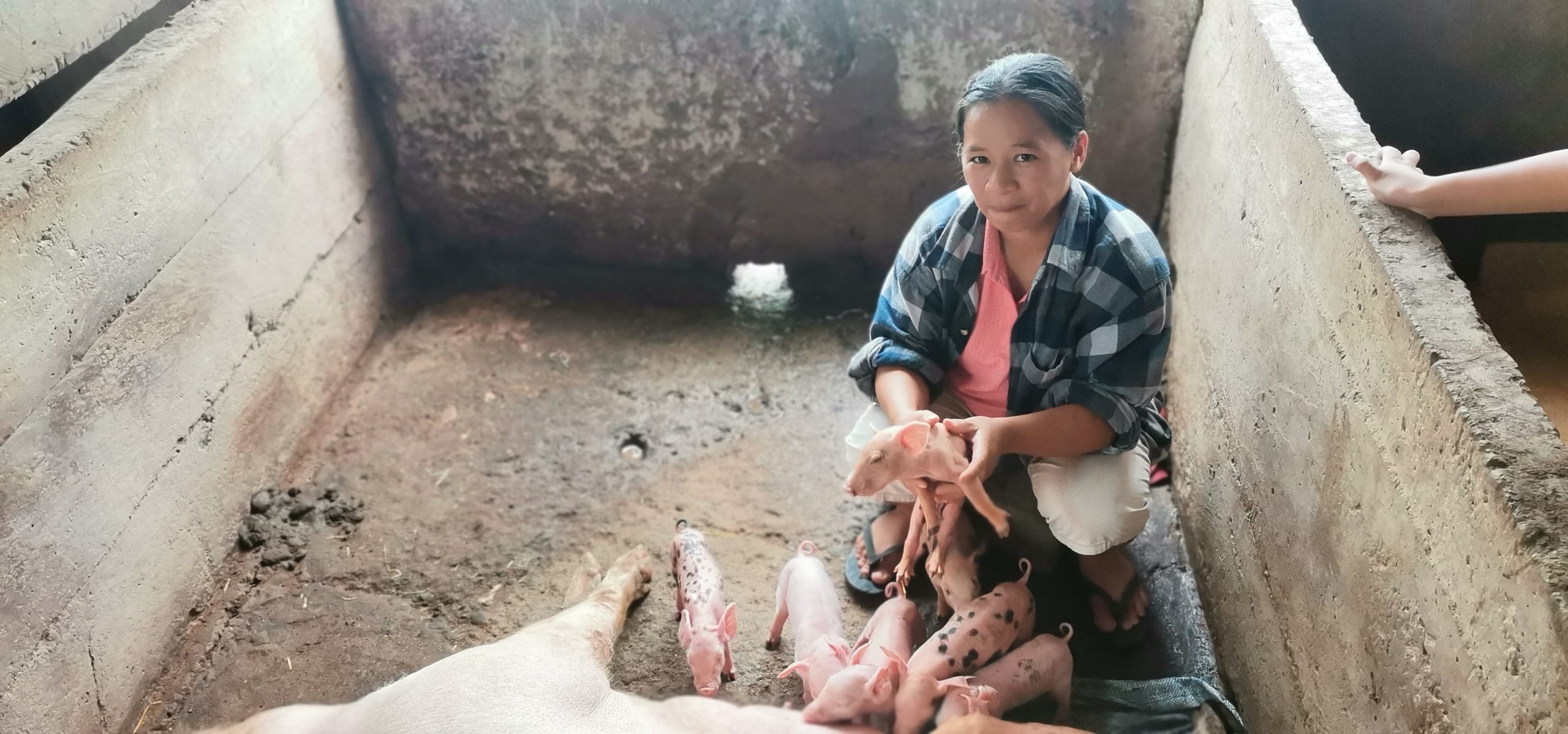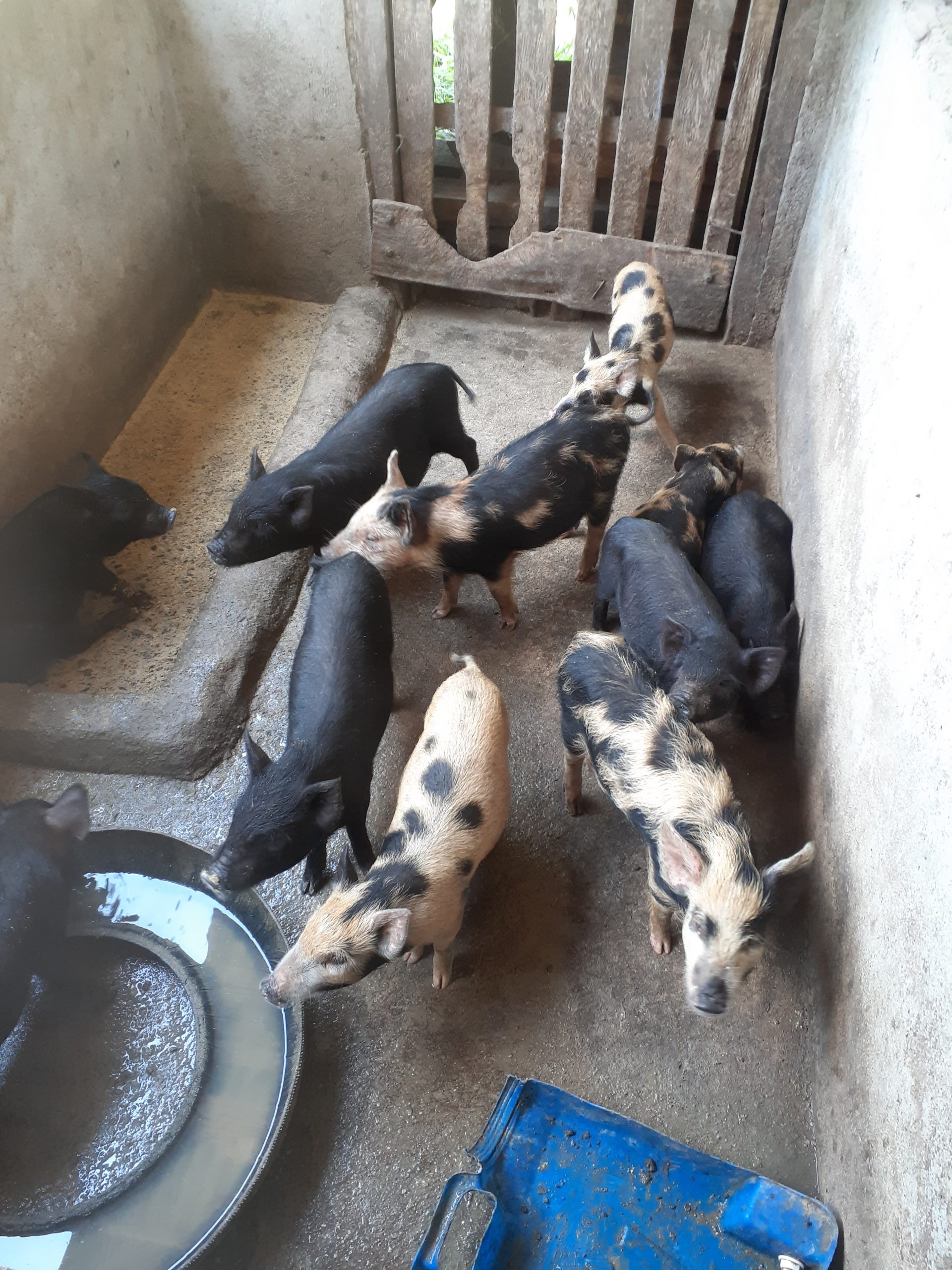APAYAO, August 1, 2022 – In the continuous fight against the African Swine Fever (ASF), sixty-five swine raisers from 5 farmers’ associations participated in the Swine Repopulation Program of the Department of Agriculture-Special Area for Agricultural Development (DA-SAAD) Program in Apayao.
These SAAD Swine Repopulation Project beneficiaries are 65 individual farmers and 5 farmers’ associations who coordinated with the local government agricultural office professing their interest in the assistance. They underwent validation processes from the provincial office, until full consideration of the program. This repopulation initiative aims to assist the farmers in raising beneficiary-owned swine through free feeds and biologics to produce offspring that will be distributed to other beneficiaries. In general, the program is geared towards strengthening small-scale or backyard swine raisers to function as multiplier farms.
The spread of the ASF led to scarcity of pork products, consequently increasing prices in the market. Through the repopulation program, the farmers were coached on Sow Management, Sustainable Farming, Swine Industry, Swine Feeding, Swine Health Management, Swine Diseases, Herbal Medicine Preparation, Waste Management, Marketing, and Climate Change and its Effect on Livestock Production. Adoption of science-based technology on swine that empowers the participants in raising pigs economically and effectively was also discussed in the training.
Moreover, SAAD Provincial Coordinator Mr. Serapio Ulabu shared that the adaptation of multiplier farms will also abate the pork supply and transportation problem, as well as lowering the cost of animals. This measure is considered advantageous because farm multiplier projects in the province are currently partially developed enterprises.
The Swine Repopulation Program
In 2021, the Swine Repopulation Program was launched in the province with a Php 4,883,350 budget, covering associations from the municipalities of Conner, Kabugao, Luna, Pudtol, and Sta. Marcela. The program supported supplements such as biologics, vitamins, and feeding needs of the initial 65 sows (farmer-owned) good for one cycle.
Mostly engaged in rice farming and labor service activities, farmers who benefitted from the program came from Calaoan Livelihood Farmers Association (CLFA) with 30 members; Narangy-ay EKB Farmers Association (NEFA) with 15 members; Upstream Livelihood Farmers Association (ULFA) with 5 members; Cabatacan, Amado. San Mariano, San Jose Farmers Association (CASS) with 8 members; and Panay, Consuelo, Marcela, Nueva, San Juan Farmers Association (PaCoMarNuSan) with 7 members.
Said members are registered under the Registry System for the Basic Sectors in Agriculture. They also underwent a Farmers’ Livestock Schooling (FLS) for swine production.
The first-in-line beneficiaries were selected based on criteria such as owning at least two (2) ready-to-breed female swine and piggery housing and maintaining biosecurity measures.
To ensure sustainability and to accommodate more farmers, a roll-over scheme for the next-in-line beneficiaries was formulated. For every sow supported by the program, two of its offspring will be passed on to two next-in-line beneficiaries who have interest in swine raising.
Currently, 418 head of litter were produced from the initial 65 head of sow supported, while 92 piglets were rolled over to the 42 next-in-line beneficiaries during the 2nd quarter of the year.
Following the swine repopulation in the area, 235 head of piglets were sold with total earnings of Php 839,000, while the remaining 23 head of piglets were set aside for farm multiplier (Table 1).
Table 1. SAAD swine repopulation status in Apayao

Meanwhile, Ramirez Lumiwan, a member of the CLFA, attested that the project was a good source of additional income because he was able to provide load allowance and tuition fee for his children who are currently attending online class from his earnings.
Ways Forward
“Thankful kami iti SAAD kin Municipal Agriculture Office ta idi kapigsa iti ASF, naikkan kami iti guide panggep biosecurity tapno lang haan mi maala jay sakit nga agdama nga mabalin nga makaapektar iti bab-babuy mi” (We are so thankful for the SAAD program and Municipal Agriculture Office because, during the height of ASF, we learned proper biosecurity measures to avoid carrying the virus that may contaminate our animal stock), expressed Ms. Bernadette Balangui, chairperson of CLFA.
In the interest of securing the development of the intervention granted to beneficiaries, the program is creating its sustainability plan before the last quarter of 2022 ends.
Members from CLFA and NEFA are planning to establish swine multipliers for community-based enterprises. While ULFA, PIAS, and BISS are planning to produce more stock to fulfill their obligations to the second-in-line beneficiaries. ###
Writer: Kathleen Faye B. Agonoy, DA-SAAD Apayao Information Officer





Comments (0)